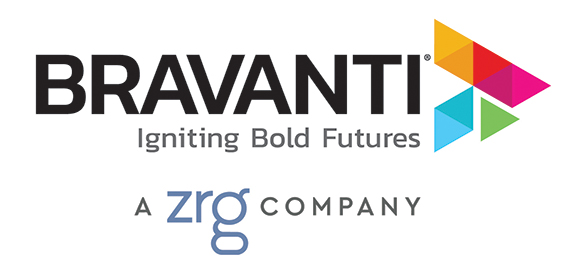Four-star Admiral Olivier Lajous was French Navy Director of Military Personnel between 2009 and 2012. In 2012, he
received the trophy of Human Resources Director of the Year, organized by Hudson in partnership with Le Figaro Economie. Admiral Lajous has been managing his own H.R consulting firm since his retirement from the Navy. He has been a partner of BPI group on change and management issues since 2014.
Throughout his career, Admiral Lajous has, among other things, served on the aircraft carrier Clémenceau during operations off of the coast of Lebanon between 1982 and 1984. He then participated in the supervision of the Strait of Hormuz and the Persian Gulf as part of the Iran-Iraq War. A graduate of the French Naval War College, he commanded the frigate De Grasse from 2001 to 2003, with which he notably participated in the international mission to combat terrorism in the Arabian Sea and in Afghanistan from January through June of 2002. He was appointed General Office
r in 2007. Our consultants met Admiral Lajous at the French Navy Headquarters in June 2012 to discuss the issue of leadership and command.
Admiral, could you tell us how you got into the Navy?
Coming from a family of seven children, I took to my responsibilities early in life. Just after graduating from high school, I responded to the call to military service, and became a simple sailor. An encounter with the director of the Navy school for reserve officers then secured my path: I had the fortune that he detected in me the aptitude for this profession. At 19 years old I enlisted for 4 years as a midshipman. In the end, I made my entire career in the heart of the Navy, so that’s 38 years, up to becoming the Director of Personnel. At 23 years old, I took command of the patrol boat Mono in Africa. The crew was composed of 30 people: half French, half Togolese. I was so glad when I was informed of my first command. Of course, my vision of leadership was then mainly theoretical.
How effectively did you take to this command?
My challenge was to show that I had authority without barking orders. At the beginning, one often gets angry but this is very often counter-productive. Above all, I understood that you have to make an effort to get to know each member of the crew and to never forget that those you command deserve you, including the “weak links” to use an expression fashionable in the media, but one that shocks me. Aboard, everyone, whatever his rank, has a real responsibility on the course of the ship. Helping the weakest is thus vital for the entire community…at the risk of sinking!
How did you learn how to lead?
The presence of experienced non-commissioned officers was important in the beginning. When you are a young officer, they know much more than you. Secondly, practice and encounters throughout your career are decisive. Your men can also be invaluable. If you guide them well, they will give back to you. Belonging to a large family as well as my time in the sea scouts had also predisposed me to the collective life very early on. Well, in the Navy, you exist only by and for the crew. Finally, in terms of values, education by the Jesuits was inestimable.
How has the concept of leadership evolved throughout your career?
At the beginning of my career, the men essentially came from rural backgrounds. Some hardly knew how to read and write. They feared the officers, who were the sole keepers of true knowledge in a very demanding environment. They looked to us almost as gods. This was not suitable for the concerned officers. Indeed, a climate of fear predisposes us to human error. From this point on, it has been different. The behaviors and levels of education between non-commissioned officers and officers are more homogeneous. Officers must therefore work on their leadership, because command by their knowledge alone is more limited.
What difference do you make between command and leadership?
The realm of leadership is the preparation of the project, of the mission. That of command is one of immediate action, once decisions are made. And sometimes, therefore, one of urgency and stress.
When I commanded at sea, before an important decision, I brought together all of the experts to reflect, including the senior non-commissioned officers and field officers. We would discuss new ideas, practices to improve, etc. I launched the debate by reiterating that no idea is forbidden. No one was to leave the room without having expressed himself, even if to contradict me. In this sense, to be a leader is to also be a facilitator
capable of giving free rein to his group, so that the preparation phase, oriented toward action, is optimal.
After having acknowledged that each person had been heard, I would make a decision. I would explain the motivations behind it and reiterate the rules for action. This is the time of command, and no longer that of discussion.
And discipline in all of this?
The challenge is to guide the crew without coercion or authoritarianism, but with discipline and the rules of communal living. When I am questioned on what I mean by the concept of discipline, I reiterate that we are doing a job that is demanding at all levels. Like athletes and even like artists, performance is achieved through daily discipline. It is not an end in itself, but a condition to achieve excellence.
Does the commander have the right to make an error?
The rule is clear: if the boat runs aground, the commander leaves the Navy immediately. In certain cases this radicalism is undoubtedly excessive. However, it does have the merit of serving as a reminder that the commander is the real decision maker. It must, however, avoid the temptation of omnipotence, even in action. Take for example port maneuvers that are still tricky. Speech must remain free enough so that one could pose the question, “is this really what we should do?” in case of bad approach. Again, we must prevent people from becoming paralyzed by fear of the boss.
What is it to be a good officer in this day in age?
One must first be at peace with oneself, in order to have the necessary decisional lucidity. But the most important quality is the capacity to care for others. One cannot command if he is not convinced that each person is valuable. The crew knows that you care for them while being demanding of them, all while being attentive to them. A good officer is therefore humble and knows how to recognize his mistakes without beating himself up about them or justifying them. A good officer is accessible. The officer-leader produces the desire to come and see him and talk with him. He is never rushed. But when emergency arises, which can be fatal while at sea, it’s back to command mode, which requires determination and the capacity to arbitrate.
Finally, I would say that a good officer must be predictable for his crew. The crew must be capable of anticipating the expectations and the reactions of their leader.
What makes the difference between a mediocre leaders and a great leader?
Culture alone permits the necessary hindsight to decide. By culture I mean above all historical, literary, geographic, psychological (more Jungian than Freudian in my case), etc. In short, everything that makes it easier to better understand the people you command and the environments toward which you are steering them.
Does higher education in matters of leadership in France appear satisfactory to you?
I observe with regret that our system of instruction tends to foster among certain people a sense of superiority that is both unfounded and incompatible with the exercise of real leadership. But I also notice, happily, that this trend is starting to diminish, notably in some prestigious business schools.
What do you think of your homologous HR directors in the private sector?
I have met many HR directors in the private sector. The majority of them have a vision of their profession that is technical, and talk a lot of HRIS, outsourcing, etc. Rarer are those who are above all well-versed in people. It is true that the pressure to make a profit is stronger in companies than in the Navy. During my meetings with some of them, I had the sense that I somewhat confused them when explaining that upon arriving in the Navy we have the sailors reflect on our core values, including honor, discipline, and patriotism.
I have also noticed that all of these HR directors share the same challenge of commitment of their personnel to the firm’s corporate vision, and wonder how to cultivate pride among employees in belonging to their organization. All are aware of the limitations of pure market logic at work. This is also why it was important that my title be “Director of Personnel” and not “Director of Human Resources.” Humans are not a resource to be managed! If worst comes to worst, if I must change my title, I would prefer that I be called “Director of Human Potential and Capabilities.”


